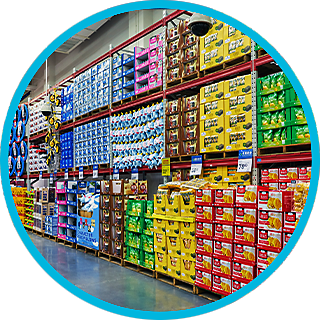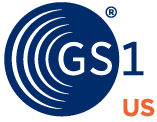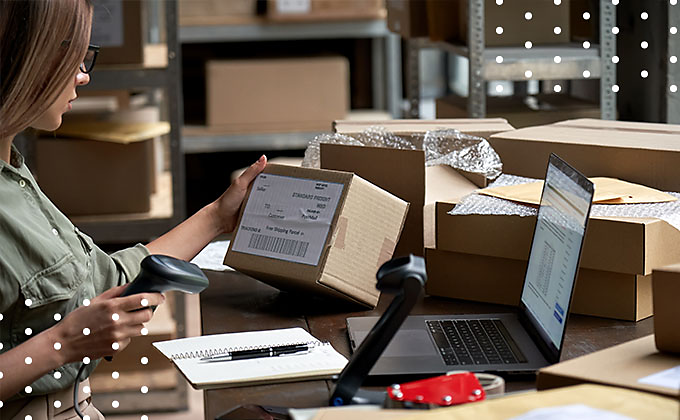Working with a distributor allows you to partner with an established network of retailers. Partnerships can make some parts of your business easier when it comes to sales. These partners already have existing relationships with retailers, which makes it easy sell your products.
Wholesalers and distributors are intermediary partners that purchase large numbers of items direct from vendors or manufacturers. There are multiple types of distributors and wholesalers. They work in a variety of industries from food, textiles, produce, material goods, alcohol, and other consumer goods.
What is a Wholesaler?
Wholesalers buy goods, often from distributors, and sell them to retailers and other businesses, making a profit. Wholesalers and distributors help producers and manufacturers sell products faster using their sales platforms.
Using wholesalers or distributors is common in industries like retail, foodservice, and healthcare. They provide a one-stop-shop for retailers to source various products efficiently, making them a preferred choice for many retailers. They act as a single, reliable source for delivering stock.
Related Topics
Wholesaler vs distributor
Wholesalers and distributors both help sell products but play different roles. Wholesalers buy from distributors to serve retailers, while distributors work with manufacturers. Distributors can exclusively sell a company's products in specific areas, both locally and globally. They act as the company's primary contact, managing returns, marketing, sales, and some logistics.
Distributors sell products in bulk to wholesalers at lower prices. Wholesalers then sell to retailers, but they don't directly interact with manufacturers. Instead, wholesalers are customers of distributors.
Wholesale vs retail
The retailer purchases the product from the wholesaler or distributor. Selling through physical stores is the last step before a customer receives the product. Many brands sell through retailers, or direct to consumer on their websites without the assistance of a wholesaler or distributor.

Working with wholesalers and distributors
When starting a distribution partnership, it is essential to manufacture your product and prepare your product line for mass-scale sales. Mass production will help you meet the demands of distribution partners.
Scaling your business’s growth and getting your product to a distributor will involve a few steps. You'll need to be able to track production, shipments, and sales—a barcode system and inventory management will be important.
Manage your inventory
Keeping a close eye on your stock, including how fast you make it, helps you meet your distributor's needs. Retailers may order 50-1000 units, while distributors might order 1,000-100,000+ units.
Inventory management is vital to run your business effectively. Without it, distribution success is hard. Distributors and wholesalers must meet their customers' demands. If you fail to meet your partners' needs, you risk losing them.
“As we’ve grown throughout the years, we’ve found that managing our inventory was important to business. Right now, we have over 100 types of products and we have to get those out to retailers quickly. We use GS1 barcodes to identify our products on site, and they’re accepted in the systems of our retailers and distributors,” - Rob Zarko, founder, Ship Bottom Brewery.
What are the benefits of using a distributor or wholesaler?
Besides having a partner act as extension of your company, both distributors and wholesalers can help scale your company’s growth.
Access to an established sales network
Larger sales volumes
An established sales network can boost sales faster than building individual retailer relationships. Distributors sell in bulk to wholesalers, creating higher demand. However, ensure your business can meet logistical and manufacturing needs to handle this demand.
Less reliance on sales teams
Building large sales teams often involves a lot of investment in workforce and training. Having a distributor(s) often means less overhead from housing sales and marketing teams.
Easily reach international markets
Distributors can streamline entry into foreign markets by acting as importers and handling warehousing, sales, marketing, customs, and legal barriers. They can specialize in certain products, complying with specific regulations, like food safety laws. Many brands first entered the US via distributors, leading to their eventual establishment in the country. Many international companies in the US utilize distribution partners for specific product types.
Other considerations for using a distributor or wholesaler
Using a distributor often involves some compromises to make the partnership work for both parties. Here are a few to consider.
Balancing your profit margins
Ensure that you have a profit margin to cover you, the distributor, and the retailer. Margins help everyone in the supply chain absorb ups and downs in sales patterns. Balancing margins keep your company and employees stable. Keep in mind that as your sales volumes increase, profit should increase too based on scale of growth.
Increased sales mean an increase in returns
High-quality control is essential as increased sales can lead to more returns. Addressing product failure rates and quality issues prior to partnering with a distributor can minimize return rates. Return policies vary, with some accepting full liability and others requiring cost-sharing.
Your customers are not “your” customers
The distribution partner, dependent upon agreed terms, can usually leave the partnership with given notice. The absence of the partner's sales could be costly and noticed quickly. Your customers are really the partner’s customer since it is their sales network. Including other sales channels outside of the relationship could help to avoid issues if the partnership falls apart.
What products does the distributor sell?
Choosing a distribution partner often determines how your business will grow and how your product sells.
It's important to choose a distributor that deals with products similar to yours. If your company makes bicycle tires, partnering with a distributor that supplies bicycle parts to bike shops is a smart move.
Does their business strategy align with yours?
When negotiating terms ensure that the partner has similar interests, the distribution business should see your deal as a partnership. A distribution partner wants to see your business grow, a partner does well when you also do well. Both parties must be able to deliver and sell products timely and efficiently.
Let GS1 US Help Your Small Business
GS1 is the global authority for the unique identification of products and companies, which serve as the building blocks for barcodes. GS1 US provides an authentic way to represent your products and services in stores and through major online marketplaces.

$)


$)